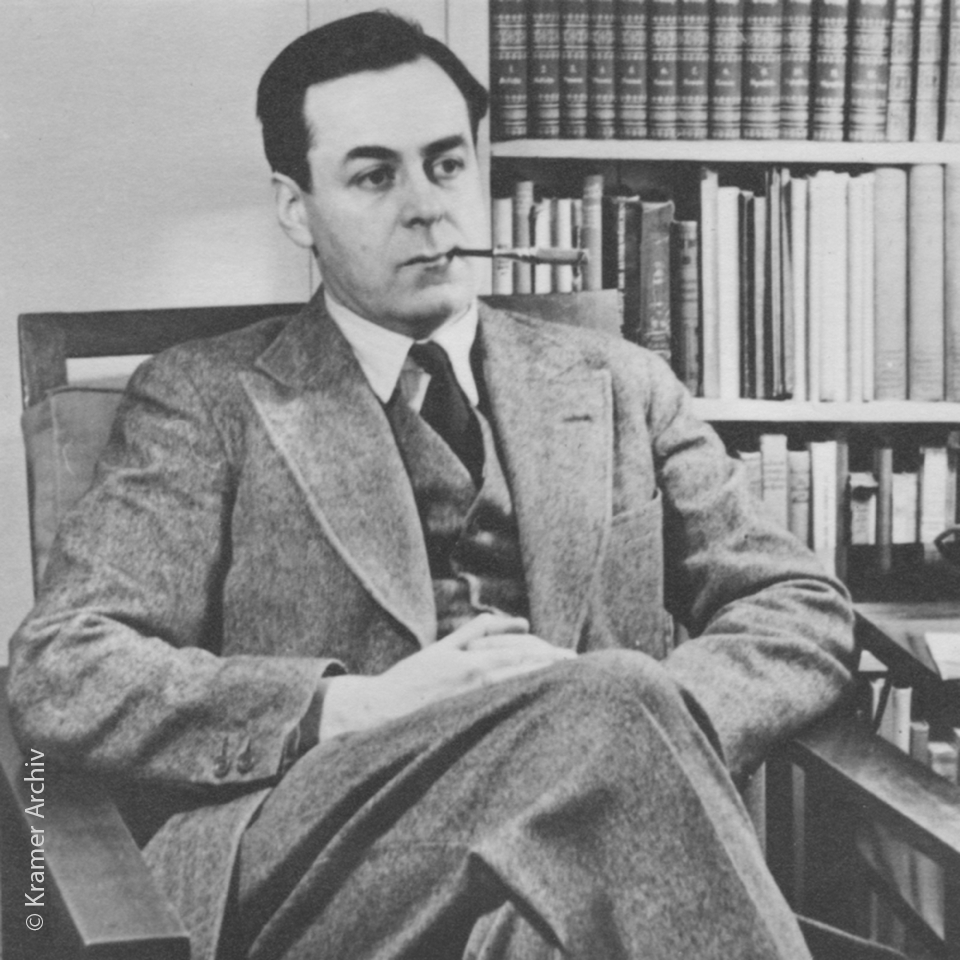Ferdinand Kramer
1898 – 1985
Ferdinand Kramer war ein bedeutender deutscher Architekt und Designer des Funktionalismus. Er wirkte hauptsächlich in Frankfurt am Main, wo er in den 1920er Jahren als Mitarbeiter Ernst Mays an der Gestaltung des Neuen Frankfurt beteiligt war. Von den Nationalsozialisten als „entartet“ geschmäht, mit Arbeitsverbot belegt, emigrierte und folgte er 1938 seiner Frau Beate in die USA. Nach dem Krieg kehrte er nach Frankfurt zurück und war dort zwischen 1952 und 1964 Baudirektor der Johann Wolfgang Goethe-Universität. Unter seiner Leitung entstanden 23 neue Universitätsgebäude.
1925 wurde Ferdinand Kramer in der Abteilung für Typisierung des städtischen Hochbauamtes in Frankfurt am Main angestellt. Während dieser Zeit entwarf Kramer hauptsächlich kombinierbare Möbel, die sich den verkleinerten Wohnungsgrundrissen anpassten, sowie Gebrauchsobjekte wie Leuchten, Sitzbadewannen und Türdrücker. Getreu dem Leitspruch „Die Funktion bestimmt die Form“, entwarf Kramer vorwiegend Objekte für den Innenausbau, die den in der ersten Hälfte des 20. Jahrhundert dominierenden, engen Räumlichkeiten gerecht wurden. Mit niedrigen Herstellungskosten schaffte Kramer ein zweckorientiertes, zeitloses Design.

